











Read More
The Bachelor of Design program offers a comprehensive and dynamic undergraduate education aimed at equipping students with the requisite knowledge, skills, and creativity essential for success in the diverse field of design. Key features of the program include a diverse array of specializations such as graphic design, industrial design, fashion design, interior design, and user experience (UX) design, allowing students to tailor their education to their specific interests. Emphasizing hands-on, project-based learning, the curriculum encourages collaborative projects, internships, and industry partnerships, providing valuable exposure and experience. The program also fosters a culture of creative exploration, critical analysis, and professional development, preparing graduates to navigate ethical and sustainable design practices and make meaningful contributions to the field.
Year wise Course Details
Courses for this semester
This course introduces students to the principles and practices of design thinking. It encompasses the exploration of design processes across various disciplines, including fashion design, interior product design, textile design, and user experience design. Students will engage in problem-solving, ideation, prototyping, and user-centered design approaches to develop innovative solutions.
Objective is to develop students' proficiency in design representation techniques.
Students will explore their local environment, including cultural heritage and design avenues, to draw inspiration for their projects. They will evaluate design careers and professional roles, gaining insights into industry trends and opportunities. Through understanding educational structures and key theories, students will build a strong foundation for their academic journey in design. They will also master design documentation and visual expression techniques, enhancing their ability to communicate ideas effectively while exploring global design trends and new technologies
Equip students with a comprehensive understanding of design fundamentals, focusing on elements and principles of design
Objective of the course is to develop the understanding of the historical timeline and its impact on design.
This course provides a strong foundation in design fundamentals, focusing on Universal Design principles for architecture, fashion, and design industries.
Extracurricular Activities provide students with opportunities to engage in diverse non-academicpursuits that foster personal growth, leadership, teamwork, and creativity. The course encourages students to participate in activities beyond the classroom, such as sports, arts, community service, cultural programs, and club-based initiatives. By balancing academic responsibilities with extracurricular involvement, students develop holistic skills essential for their personal and professional lives.
Courses for this semester
Extracurricular Activities provide students with opportunities to engage in diverse non-academic pursuits that foster personal growth, leadership, teamwork, and creativity. The course encourages students to participate in activities beyond the classroom, such as sports, arts, community service, cultural programs, and club-based initiatives. By balancing academic responsibilities with extracurricular involvement, students develop holistic skills essential for their personal and professional lives.
This comprehensive course introduces students to the fundamental principles and practices of visual communication design. It covers the historical evolution of visual communication, essential design elements, color theory, typography, and digital tools. Students will learn how to effectively convey messages through visual elements, understand perception principles, and master modern design techniques. The course combines theoretical knowledge with practical applications, preparing students for real-world visual communication challenges in the digital age.
Objective of the course is to develop the understanding of the historical timeline and its impact on design.
This course introduces students to the fundamentals of Interaction Design. The goal is to design artifacts that allow the users to meet their needs in the most effective, efficient and satisfying manner. The course introduces the novice to a cycle of discovery and evaluation and a set of techniques that meet the user's needs.
The objective is to develop students' proficiency in design representation techniques.
This course provides an immersive exploration into the principles and practices of futuristic design, emphasizing innovation, sustainability and inclusivity as core pillars. Students will engage with cutting-edge concepts that redefine design across multiple domains, including urban planning, product development, technology integration and cultural preservation. The curriculum delves into the theoretical and practical foundations of futuristic design, covering essential principles such as adaptability, human-centric approaches and systemic thinking. By analysing emerging technologies like Artificial Intelligence (AI), Augmented Reality (AR) and the Internet of Things (IoT), students will learn to integrate these tools into visionary solutions. Through a focus on user needs and global dynamics, the course equips students to address complex challenges such as demographic shifts, environmental crises and cultural globalization. Emphasis is placed on sustainable practices, advanced materials and innovative techniques, empowering students to design solutions that are forward-thinking, ethical and impactful. With a balance of theory and practical applications, this course fosters creativity and critical thinking, enabling students to develop designs that not only meet today’s demands but also anticipate the possibilities of tomorrow.
The objective of the Climate Responsive Design course is to equip students with the knowledge and skills to create sustainable, energy-efficient designs by understanding climate conditions. It emphasizes passive design strategies, material selection, and innovative approaches to minimize environmental impact, ensuring adaptability and resilience in the domain of design
Cultivate creativity and originality by engaging in experiential learning activities that push the boundaries of traditional design methods.
Courses for this semester
This course delves into the art of surface embellishment, a crucial aspect of fashion design that enhances the visual appeal and uniqueness of garments. Students will explore various techniques and materials used for embellishing fabrics, from traditional methods to contemporary practices. Through hands-on projects and theoretical study, students will develop the skills necessary to create intricate and innovative surface designs, adding value and distinction to their fashion creations.
The course explores the fundamental concepts and practices involved in product costing, pricing strategies, prototyping, fabrication techniques, and designing for value. Students will gain an understanding of how to effectively manage costs while maintaining quality and value in product development. Through a combination of lectures, practical exercises, and case studies, students will develop the skills necessary to optimize product design and manufacturing processes.
The course aims to develop students' ability to appreciate and critically evaluate design. It covers the fundamentals of design appreciation, the analysis of design elements and principles, the understanding of design contexts and histories,and the techniques of critical writing. Through lectures, discussions, and practical assignments, students will learn to articulate their observations and critiques effectively.
The course aims to equip students with foundational skills in understanding men's body measurements, body types, and their application in pattern making. Students will learn to draft basic male blocks, including jackets, shirts, sleeves, and pants, and develop patterns using these blocks. The curriculum explores Indian and Western wear, from classic to contemporary styles, emphasizing precision and adaptability. Through practical projects, students will create tailored patterns for men’s wear, honing their ability to address diverse design briefs. By the course's end, students will confidently apply techniques to create industry-standard patterns for a variety of men’s fashion segments.
Courses for this semester
This course introduces the advanced techniques focusing on the creation of garment with understanding of pattern making techniques. Students will learn how to stitch and create well-fitting garments. The course combines machine handling knowledge with practical skills, enabling students to understand the difference between various garment construction, and garment fit. This course will equip students with the advanced skills required for construction and garment design, forming a crucial part of their fashion design education.
This course aims to provide fashion design students with a comprehensive understanding of accessory design, equipping them with the skills needed to succeed in the fashion industry.This course will make students familiar with the term accessory, use and role of accessories in the fashion industry. The student will be able to design and develop fashion accessories as per current trend and requirement.
The course emphasizes on introduction to various organizations which are related to the design domain such as design enterprises, online business, export and import industry, various development organizations, different government organizations and their schemes. The students will develop their knowledge and understanding towards various organizations related to Design domain which will further help them to approach for career building.
This course explores the work and philosophies of influential designers who have shaped the field of design across various disciplines. Students will study the contributions and design thinking of master designers, analyzing their approaches, methodologies, and the impact of their work on contemporary design. Through lectures, discussions, case studies, and projects, students will gain a deeper understanding of the principles and philosophies that drive exceptional design practice.
Heritage Conservation is a comprehensive course aimed at providing students with an understanding of the principles, practices, and importance of preserving cultural heritage. This course covers various aspects of conservation, including architectural preservation, cultural heritage management, material conservation techniques, legal and ethical considerations, and community engagement. Through lectures, field visits, case studies, and practical projects, students will learn to appreciate the value of heritage conservation and develop the skills necessary to contribute effectively to this field.
Courses for this semester
Research Methodology for Designers is a course aimed at equipping students with essential skills and knowledge in conducting research relevant to design practice. This course spans key aspects from literature review and gap analysis to hypothesis development and ideation. Students will engage in practical exercises, workshops, and projects that will enhance their ability to critically evaluate existing research, design appropriate methodologies, collect and analyze data effectively, and develop innovative concepts based on research findings. Through this course, students will develop a robust foundation in research methods tailored to their future roles as designers.
Courses for this semester
This course focuses on preparing students for the practical aspects of working in the design industry. This course covers essential topics such as ethical standards, client relationships, project management, legal considerations, and career development strategies. Through case studies, workshops, guest lectures, and practical assignments, students will develop the skills and knowledge necessary to navigate professional challenges and excel in their future careers as designers.

CST- Common scholarship test is a national and international level online MCQ based examination funded for intellectual empowerment by Assam down town University.
CST- Maximum enrolment each year is 269 seats and any 10+2 students can apply. Adtu is northeast India’s first placement driven university to provide 100% scholarship benefits worth 30 cr.
CST aims to inspire brilliant and competent students to pursue further education. Accredited with a prestigious grade by NAAC, UGC and AICTE.
Explore more scholarships that can help you reach out your goal with financial aid.
This scholarship is valid on the basis of the board/university examination
| 95% & above | 100% Scholarship on all semester |
| 90%-94.9% | 50% Scholarship on all semester |
| 80%-89.9% | 25% Scholarship on all semester |
This scholarship is valid on the basis of the board/university exam
| National & International Level | 100% Scholarship on all semester |
| State Level | 50% Scholarship on all semester |
| District Level | 25% Scholarship on all semester |
This scholarship is valid on the basis of the board/university exam
| National & International Level | 100% Scholarship on all semester |
| State Level | 50% Scholarship on all semester |
| District Level & NCC Certificate Holder | 25% Scholarship on all semester |
Discover a multitude of world-class amenities and cutting-edge resources at Assam down town University, enhancing your academic journey to new heights.
The Start-Up & Incubation Centre at Assam down town University provides a supportive environment for young entrepreneurs to develop and grow their business ideas. The center provides mentorship, funding, and networking opportunities to help innovative ideas become successful businesses.
SFURTI scheme to support rural entrepreneurs and innovators, an initiative by the Ministry of MSME
TIDE 2.0 scheme for ICT-based startups which provides a grant of Rs. 4L and Rs. 7L under EiR and Grant categories respectively, an initiative by the Ministry of MeitY.
dtVL Ideation, an incubation program for early-stage entrepreneurs with a market-ready solution/product, offering interest-free loans up to Rs. 2 lakhs.
Sprout UP, an incubation program for students, faculties, and researchers with innovative business ideas, prototypes, or technology solutions.


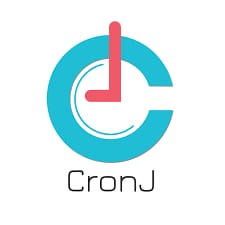




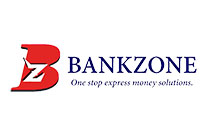

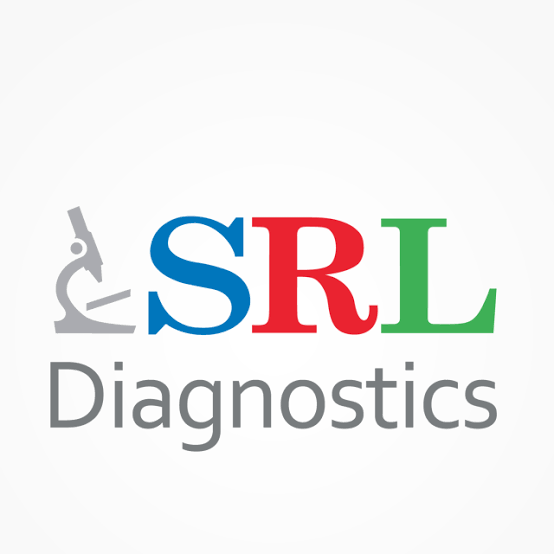


















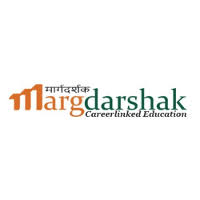






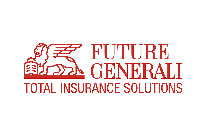


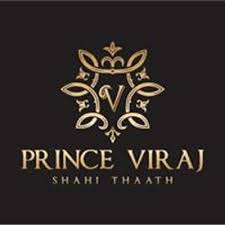







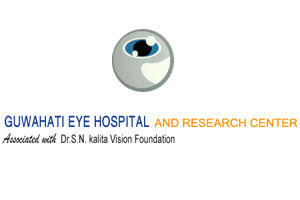


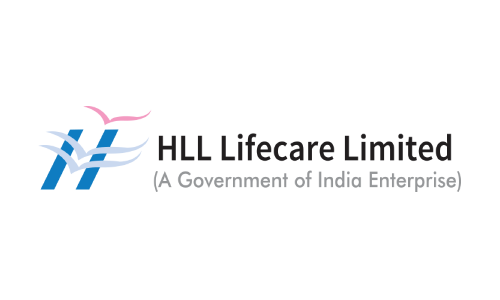
"I am a BBA student of 3rd semester. I hail from Bhutan. I vow that I am having a great experience i...
"AdtU is amazing. I am a BBA student of 2019-22 batch and I am just grateful for the amount of oppor...
Let us be grateful to the people and place who makes us happy. They are the charming gardeners whom ...
Currently I am pursuing MBA in Assam Down Town University. MBA is the professional course through wh...
AdtU is a university that focuses on giving knowledge, education and simultaneously making the stude...
The Assam downtown University has been a great learning experience. The university has provided me w...
My experience with AdtU has been splendid one indeed. Little needs to said about its scenic infrastr...
As a student I am very glad that I have got an opportunity to study here in Assam downtown universi...
My name is Sakhyajit Roy. I?m from Tripura. I joined the university on Auguest, 2017 as a student of...
I share immense pleasure to share my post graduate program experience in Assam down town University....
AdtU is a platform where I got golden opportunities to feed my zeal for knowledge through the dynami...
I am fortunate to get an opportunity to study here in Assam Downtown University. The best thing abou...
Our university is one of the best place for developing ourselves in the field of research and acedem...
ADTU is a university that is very good interms of infrastructure, academics and placements. Our tea...
It is one of best private colleges in North East India, it also provides a good environment for ed...
ADTU is a good University which provides the students with best quality lectures and ensures comfort...
The environment of Assam downtown university is very pleasant.The department of BMLT is very good a...
The university has all the necessary facilities and amenities for students . The classrooms and the ...
Assam downtown University is well recognised all over india. In the ongoing pandemic situation it ha...








